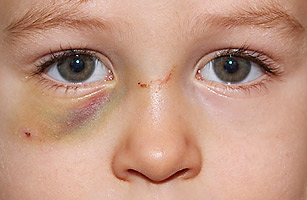
(3 of 3)
Even if they enter these entanglements with a more sophisticated ability to socialize, such children are still practicing valuable skills — how to interact with people whom they don't like and who don't like them and how to resolve conflict, manage their emotions and control impulses. They even learn the fine art of ignoring those who bother them. In fact, according to Witkow, many of these antipathies may simply be mutual because one party senses the other's dislike and decides not to waste energy on an already prejudiced classmate — a sophisticated calculation. In sum, they learn the essential life skill of dealing with adversaries in the adult world, where no teacher or principal can mediate the interaction.
"For children to really internally grasp what it means to be right and wrong — they do that during unsupervised play," says Helene Guldberg, an associate lecturer in child development at the Open University and the author of Reclaiming Childhood: Freedom and Play in an Age of Fear. When parents are constantly refereeing, she explains, children "listen to what adults say is wrong or bad, but that's very externalized morality. In their interactions with other children, they have to negotiate and come up with rules. They internalize it."
While most anti-bullying programs involve important lessons on conflict resolution and compassion, they also often involve reporting systems that mean children must relinquish control of the situation to an adult. Karin Frey, a research associate professor of educational psychology at the University of Washington who helped develop the anti-bullying curriculum Steps to Respect echoes a great number of researchers when she says children are hesitant to report bullying because they anticipate a dysfunctional response from authority figures that vacillates between overreaction and inaction.
Part of the reason adults vary in their reaction is that there is no set definition of what constitutes bullying. To that end, the Centers for Disease Control and Prevention (CDC) has convened a task force to create a standardized definition of bullying for use in research and policy work. Meanwhile, researchers are calling for a more broad-based mental-health curriculum instead of a targeted anti-bullying program.
Clayton Cook, who is part of that CDC task force, hopes for a curriculum, concurrent with other subjects, that helps teach social skills, impulse control and coping mechanisms for a wide range of problematic situations — divorces, deaths in the family, illnesses and financial problems. Such a holistic approach could help children who are not bullied as well as help defuse some of bullying's power. "Bullying is just one of many life stressors that can affect kids," Cook says.
Imagine if kids such as Jamey Rodemeyer and the classmates who tormented him weren't treated like either criminals or victims but like children who needed to be taught social skills alongside their social studies. Imagine if they all learned not that everyone has to be friends but that they could not be friends, with compassion and decency.